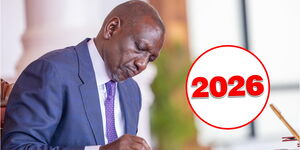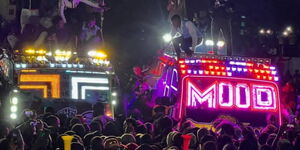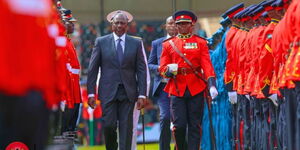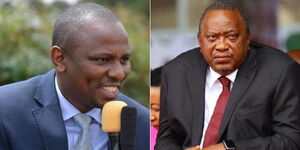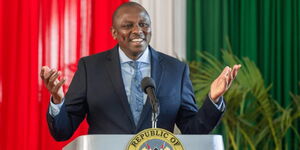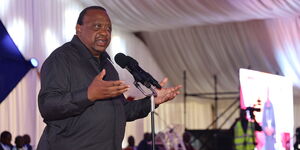When Charles Wanyoike Rubia was elected the first Nairobi Mayor in 1963, his political fortunes seemed to be headed for the skies but that, unfortunately, was not to be.
The former Cabinet Minister's journey began in Mariaini in Murang’a County, where he was born in 1923. After attaining education at Kahuhia Primary School and Kagumo Intermediate School, he proceeded to Alliance High School, where he was educated by Eliud Mathu, a former nominated member of the Legislative Council (LegCo).
His entry into public service happened at the beginning of the 1950s when he joined Nairobi Municipal Council and made an official entrance into politics in 1955.
He was first nominated to serve in the African Ward Council and rose up the ranks to serve in the Municipal Council. After a five-year stint, he was nominated to the Legislative Council and left in 1962 to become Nairobi's first mayor.
His rise in the city's politics at the time was somewhat meteoric and he enjoyed power being second to the then President, Jomo Kenyatta, owing to his powerful position.
In 1968, he joined elective politics and served as Kenya African National Union (KANU) Party branch chairman and used this opportunity to ascend to Parliament as an MP in 1969 representing Starehe Constituency. Through his rise, he was appointed as the Assistant Minister for Education.
His woes began in the seventies after he became critical of the then one-party state and the founding President. With his critical tongue, Rubia won two consecutive elections and was appointed Minister of Local Government and Urban Development.
At the time, he enjoyed a cordial relationship with the then President Daniel Moi but grew distant when, among other things, he criticised the Mlolongo voting system.
According to reports, Rubia had, in the course of 1978 and 1986, fallen out with the state for defending Njonjo who was also seen as a traitor and at some point, he was the only MP who opposed the then Constitutional Amendment Bill that would make changes to various offices including that of the Attorney General.
His first torture, at the Nyayo house, came in 1987 when he was picked up after being accused of planning to kick out President Moi.
After being released five days later, he was again arrested in 1990 while planning a rally at Kamukunji grounds alongside Stanley Matiba. The leaders championed for the multi-party system the country enjoys today.
So bad was his torture both physically, businesswise and emotionally that his wife allegedly passed away after breaking down upon seeing his state.
His release after the 1990 arrest only happened upon a request by his then doctor, who explained that Rubia needed urgent medication. The Nyayo House ordeal lasted nine months.
A report by Business Daily indicated that he had to give up his businesses including Peponi School, Rweru General Stores and directorship of the Industrial & Commercial Development Corporation.
After his release, Rubia filed a suit against the State demanding compensation of Ksh40 billion following his torture.
In his suit, the former lawmaker was seeking Ksh5 billion as compensation for general damages, Ksh5 billion as compensation for exemplary/moral damages, Ksh20 billion as compensation for all medical costs and Ksh10 billion for general relief.
He passed away in December 2019 before knowing the fate of his suit application that was scheduled for hearing in 2020. He had also decried that his children were discriminated against while applying for jobs they qualified for.

